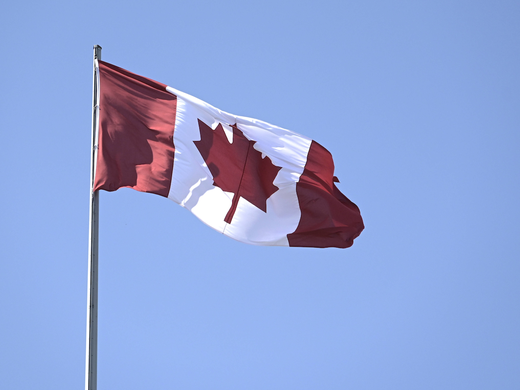US President Donald Trump’s tariffs on goods imported from Canada will be severely destabilizing. But this trade war will also have profound long-term effects on Canada’s knowledge economy. Data governance, digital trade, intellectual property (IP) and other innovation policy measures will surely be emphasized by the cadre of big tech leaders now clinging around Trump.
Canada needs a coherent international IP and digital trade strategy, and our best opportunities lie in a perhaps unexpected place: the African continent. In North America, negotiations on knowledge economy issues will be fraught with challenges. Canada’s current trade negotiations in Asia and South America will likely yield mixed results. Meanwhile, the African Continental Free Trade Area, known as AfCFTA, is now the world’s largest free trade area. It connects 1.3 billion people in 54 countries with a combined GDP of US$3.4 trillion, presenting incredible opportunities for Canada.
Starting with the challenges in North America, Canada perennially appears on the US Trade Representative’s “Special 301 Report” on IP protection and enforcement, but the stakes in 2025 are likely to be more serious than in the past. Trump’s trade memo directs officials to “investigate the causes of our country’s large and persistent annual trade deficits in goods, as well as the economic and national security implications and risks.”
In 2018, the Canada-United States-Mexico Agreement became “the new high-water mark” in global IP standards. Its renegotiation, no later than 2026 but likely sooner, will take place against a backdrop of substantially more economic bullying. America’s recurring demand is for more, longer and stronger IP rules.
Typically, this includes more pharmaceutical patent protection, raising the price of medicines. The Robert F. Kennedy Jr. wildcard may or may not change the US position. Beefier copyright laws also always appear on the list of US demands. But Canada’s latest copyright-like attempt to force tech companies to pay for online news links backfired under opposition from Meta and Google. There is almost no chance Trump’s tech conclave will support demands for similar measures targeting the use of content to train artificial intelligence (AI).
It remains to be seen what, if any, sway Hollywood and the recording industry will hold with Trump when it comes to film, television, music and Canada’s long-standing insistence on exceptions supporting our cultural industries. Reading the tea leaves, this is likely to be a very tough fight for Canada. Even before Trump’s return, Canada heard concerns from the US ambassador and members of Congress, raising the credible threat of a trade dispute over the Online Streaming Act, which makes the likes of Netflix and Spotify promote and pay for Canadian content.
Another aggressive American push may come on trade secrets. Trump’s negotiating team could, under the guise of protecting such secrets, try to prohibit Canada from regulating algorithmic transparency or access to AI training data. Yet such measures could be key to Canada’s AI ambitions, helping to manage risks and adverse impacts of AI while supporting start-ups to compete against the US incumbents’ massive head start.
It’s tempting to think Canadian and American objectives are aligned on such issues, especially when it comes to safeguarding against IP theft by China. Canada has begun to take the bait conflating research security and IP, which are related but distinct issues. We must not overlook the fact that the IP game is rigged, with the deck already stacked against us. Ratcheting up protection benefits American firms relatively more than it does Canadian ones, especially start-ups. Canada is far better positioned than other countries to benefit economically from open science. Without proper absorptive capacity — the ability to value, assimilate and apply new knowledge and technologies — in our own private sector, we must not simply stockpile IP rights as ammunition for the Americans who almost inevitably acquire our growing companies.
On the global stage, Canada and partners such as New Zealand took advantage of Trump 1.0’s withdrawal from what became the Comprehensive and Progressive Trans-Pacific Partnership, suspending certain IP provisions that were not in our best interest. But then, in 2022, we were left on the sidelines of President Joe Biden’s even more ambitious Indo-Pacific Economic Framework for Prosperity. And with the world now facing a renewed American retreat from international cooperation, Canada is barely further ahead than it was years ago.
While negotiations between Canada and the Association of Southeast Asian Nations seem to be plodding along, a possible trade deal between Canada and India is going nowhere fast. Canada has been pursuing a deal with MERCUSOR, a lucrative market in South America. But we were beaten to the punch by the European Union, which reached an agreement with the bloc, including Argentina, Brazil, Paraguay and Uruguay, last December. For Canada, closing a deal could now be very difficult, given the mutual adulation between Trump, Elon Musk and Argentinian President Javier Milei. At the very least, the dynamics have dramatically changed.
In this context, Canada’s greatest trade opportunities lie on the African continent. Barely five years old, AfCFTA’s long-term transformative potential for the continent and the world is profound. Groups like the Business Council of Canada are correct that meeting Canada’s trade diversification targets will be impossible without engaging Africa, and the opportunity for Canada is enormous.
Africa’s future lies in knowledge and innovation. Already research is showing extraordinary opportunities for Canada to engage Africa in areas such as digital trade and AI, clean energy innovation, biomedical technologies, data-driven agriculture and more. The time for this is now. But despite laudable talk of a new era of partnerships, Canada has yet to meaningfully develop — let alone implement — a long-awaited Africa strategy.
Canada’s own political upheaval could not have come at a worse time, making the country even more vulnerable to the machinations of our traditional trading partners. Now that the leadership race has begun, the next prime minister will need to hit the ground running with a plan to counter Trump’s threats and actions head-on and defend Canada’s knowledge economy.



